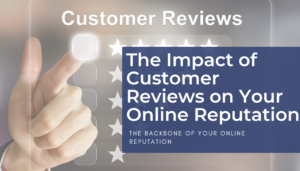Maintaining a positive reputation is essential for any business or organization, but it’s especially important during a crisis. When a crisis hits, it can be easy for a company’s reputation to suffer, and the impact can be long-lasting. A damaged reputation can lead to lost customers, decreased revenue, and even legal consequences. That’s why it’s crucial for businesses to have a plan in place for managing their reputation during a crisis.
In this article, we’ll outline five key strategies for maintaining a positive reputation in a crisis. These strategies include being proactive and transparent, communicating clearly and effectively, focusing on solutions rather than blame, building relationships, and monitoring and responding to feedback. By following these strategies, businesses can help to mitigate the negative effects of a crisis and come out stronger on the other side. So, let’s dive in and explore these essential reputation management strategies in more detail.
Be Proactive and Transparent for Positive Reputation
One of the most important things a business can do during a crisis is to be proactive and transparent in its response. This means responding to the crisis as quickly as possible and being honest and open with stakeholders about what happened and what the company is doing to address it.
First and foremost, it’s essential to respond to the crisis as quickly as possible. Delaying your response can give the impression that the company is not taking the situation seriously or that it has something to hide. Therefore, it’s crucial to have a crisis management plan in place that outlines who will be responsible for responding and what steps will be taken.
Once a response plan is in place, it’s essential to keep stakeholders informed. This includes customers, employees, shareholders, and the media. Transparency is key in crisis communication. It’s essential to be honest about what happened, why it happened, and what the company is doing to address the situation. This includes acknowledging any mistakes or shortcomings and taking responsibility for them.
If the company is at fault for the crisis, it’s crucial to apologize sincerely and take corrective action. This can go a long way in repairing the damage to the company’s reputation. However, if the company is not at fault, it’s essential to communicate the facts clearly and correct any misinformation that may be circulating.
Communicating Clearly and Effectively in Reputation Management
Clear and effective communication is essential during a crisis. When a crisis hits, people want to know what’s going on and what the company is doing to address the situation. Therefore, it’s crucial to tailor messaging to specific audiences, use clear and simple language, and provide consistent updates.
Tailoring messaging to specific audiences means considering the needs and concerns of different stakeholders, including customers, employees, shareholders, and the media. Each group may have different questions and concerns, and it’s essential to address them in a way that resonates with them. For example, customers may want to know how the crisis will affect their orders or deliveries, while employees may want to know if their jobs are secure.
Using clear and simple language is also important. Technical jargon and corporate speak can be confusing and frustrating for stakeholders. Therefore, it’s best to use language that is easy to understand, concise, and direct. Avoid using vague language or euphemisms that may obscure the true nature of the crisis.
Providing consistent updates is also important. People want to know what’s going on, and they want to know that the company is actively working to address the situation. Therefore, it’s essential to provide regular updates on the company’s response to the crisis. This can be done through press releases, social media updates, or direct communication with stakeholders.
Focus on Solutions, not Blame
During a crisis, it can be tempting to assign blame or deflect responsibility. However, this approach is unlikely to help the company maintain a positive reputation. Instead, the focus should be on finding solutions and taking corrective action.
When a crisis hits, it’s essential to gather all the relevant information and conduct a thorough investigation to determine the root cause of the problem. Once the cause has been identified, the company should focus on developing a plan to address it. This may involve making changes to policies, procedures, or operations to prevent a similar crisis from happening in the future.
It’s also essential to communicate this plan to stakeholders. Let them know what steps the company is taking to address the crisis and prevent it from happening again. This can help to rebuild trust and confidence in the company.
At the same time, it’s crucial to avoid assigning blame or pointing fingers. This can create a defensive and adversarial environment that is unlikely to lead to a positive outcome. Instead, focus on finding solutions and taking corrective action. This can help to build credibility with stakeholders and demonstrate that the company is taking the crisis seriously.
Build Relationships for Positive Reputation
Building and maintaining relationships is essential for any business, but it’s even more critical during a crisis. A crisis can create uncertainty and anxiety, and people want to know that they can rely on the company to address the situation effectively.
One way to build relationships during a crisis is to be empathetic and show that you understand the concerns and needs of stakeholders. This may involve reaching out to customers to see how they are doing or providing resources and support to employees who may be affected by the crisis.
Another way to build relationships is to be transparent and honest in your communication. This means acknowledging any mistakes or shortcomings and taking responsibility for them. It also means providing regular updates on the company’s response to the crisis and being available to answer questions and address concerns.
In addition, building relationships during a crisis requires a long-term perspective. This means focusing on building trust and credibility with stakeholders over time, rather than just trying to manage the crisis in the short term. This may involve investing in community outreach or sustainability initiatives that demonstrate the company’s commitment to its stakeholders.
Finally, building relationships during a crisis requires a willingness to listen and learn from feedback. This may involve conducting surveys or focus groups to understand stakeholders’ perceptions and concerns or engaging with stakeholders directly through social media or other channels.
Monitor and Respond to Feedback
During a crisis, it’s essential to monitor feedback from stakeholders and respond promptly and appropriately. This means listening to what people are saying about the company and its response to the crisis and taking action based on that feedback.
One way to monitor feedback is to set up listening posts on social media and other online channels. This can involve monitoring hashtags and keywords related to the crisis and the company and responding to comments and messages in a timely manner. It’s also essential to monitor traditional media channels, such as newspapers and TV news programs, and respond to any negative coverage.
In addition to monitoring feedback, it’s crucial to respond appropriately to it. This may involve providing additional information or context to address misunderstandings or misconceptions or taking corrective action in response to legitimate concerns or complaints.
Responding to feedback also means being open to criticism and feedback and using it to improve the company’s response to the crisis. This may involve making changes to policies or procedures or addressing any weaknesses or shortcomings in the company’s crisis management plan.
Finally, it’s essential to communicate the company’s response to feedback to stakeholders. This can help to demonstrate that the company is listening and responding to their concerns and can help to build trust and credibility over time.
Final Thoughts
In conclusion, a crisis can have a significant impact on a company’s reputation. However, by being proactive and transparent, communicating clearly and effectively, focusing on solutions instead of blame, building relationships, and monitoring and responding to feedback, a company can mitigate the negative effects of a crisis on its reputation and emerge stronger in the long term.
At Darksky Digital, we understand the importance of maintaining a positive reputation, especially during a crisis. Our team of SEO content writers can help your company develop a crisis management plan that includes these key strategies and more. With our expertise in SEO and content marketing, we can help you communicate effectively with stakeholders, build relationships, and monitor and respond to feedback.
If you want to learn more about how we can help your company maintain a positive reputation during a crisis, please contact us today. We’re here to help you navigate the challenges of a crisis and emerge stronger on the other side.
Read more of our posts on our blog:
- Understanding the Basics of Pay-Per-Click Advertising: A Beginner’s Guide

- 5 Types of Content Every Marketer Should Know About

- The Impact of Customer Reviews on Your Online Reputation

- Measuring the ROI of Your Social Media Marketing Campaign: Unraveling the Secrets to Digital Success

- Content Marketing vs. Traditional Advertising: Which is More Effective?

- Title: The Future of SEO: Unlocking the Secrets to Digital Success


